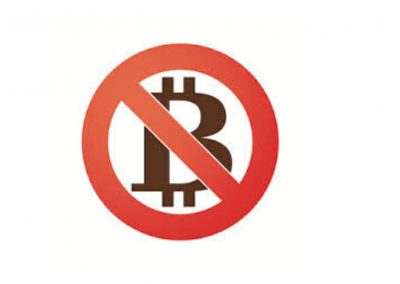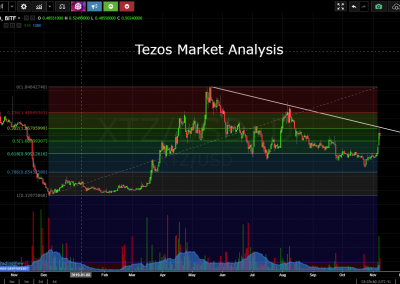There’s more to blockchain technology than the coins cryptocurrencies generate. While valuable in their own right, these coins are only a fraction of the full potential of blockchain technology.
The current possibilities are nearly endless. Here are 12 blockchain services in the works…
#1 – Smart Contracts
Smart Contracts are probably the most well-known use case for blockchain technology. Currently, they’re already operating over many blockchain platforms.
These are self-governing applications that execute commands without the need of a third party to act as an intermediary. This is extremely beneficial when you want to trade cryptocurrency or purchase a specific good or service with cryptos from a trustless system.
#2 – Decentralized Internet
Services like Google, Facebook, Twitter, etc. provide users with platforms to research and communicate over the internet in exchange for these companies having access to their data. They then sell this data to third parties.
Facebook along with other companies have recently come under scrutiny for their role in selling user data.
A decentralized internet would instead give users control of their data.
Currently, if governments or organizations want to access your information, it is relatively easy for them to do so. However, over a decentralized internet, that information would be encrypted and only available if the user chooses to allow other parties to access it.
#3 – Document Authentication
Providing copies of sensitive information can be a troublesome, painful process. Scanned documents often need to be notarized and processed within a specified time.
Additionally, specific organizations may have different requirements for these types of sensitive data. The result is a clunky system.
Document authentication over the blockchain would ensure that sensitive materials, items like birth certificates, college degrees, social security numbers, etc., were verified and entered into the blockchain.
This means that when it comes time to providing proof, it’s as easy as having a user send their data to the specific organization. The blockchain prevents tampering and therefore efficiently acts as its own notary.
#4 – Cloud Services
It is a misconception that current cloud services are decentralized. Places like Amazon and Google that offer cloud storage do so at centralized facilities.
This makes them vulnerable to hackers and also increases the cost of storing data there. More so, individuals have to trust that those working at the facility will not access their private data.
Decentralized cloud services will offer a genuinely decentralized form of cloud storage over the blockchain. User data gets fractured and distributed over the blockchain where only its owner can retrieve it. This keeps information safe and secure from malicious parties.
#5 – Infrastructure as a Service
Often, developers sometimes find themselves at a bottleneck for computing power for specific tasks. This can raise costs exponentially or even keep developers from entering the market.
With infrastructure as a service, users can access computing power of the blockchain network to complete complex tasks rather than outright purchasing additional resources they may not need that often.
And because they’re accessing the resources other users on the network, those users can capitalize on downtime by allocating resources to other projects when their computers aren’t in use and charging a nominal fee.
#6 – Secure Voting
In many countries, the voting process is corrupt. Uncounted or miscounted votes sway elections.
With secure voting on the blockchain, polling places can accurately account for and display vote totals while protecting individual voting data.
This would create transparency by allowing anyone to view the data. Individual voters can also quickly verify their ability to vote at the polling place to future prevent corruption.
#7 – Healthcare Services Management
Blockchain technology will significantly benefit current healthcare systems. The field of healthcare currently wastes profound amounts of money attempting to pass data through their clunky and outdated systems.
These siloed databases create continuous problems with information transfer. This results in wasted resources and more importantly, unnecessary risks to patients.
The healthcare system can utilize the secure ledger to store and transmit sensitive information to multiple parties that can readily access it, saving time, money, and lives.
Keeping patient records on the blockchain also ensures the optimization of healthcare by providing a readily accessible medical history for practitioners to optimize care.
#8 – Prediction Markets
Prediction markets are valuable resources that provide educated guesses about future events based on collective predictions. Running these markets on the open ledger of the blockchain would create transparency and prevent corruption, allowing more people to put trust in these types of systems.
The data these markets generate can help organizations and institutions plan outcomes based on educated guesses of the future.
#9 – Crowdfunding
Many crowdfunding platforms can easily be replaced with programs running on blockchain technology. Current models collect excessive fees from successful products.
Users can avoid these through blockchain crowdfunding platforms that would utilize Smart Contracts instead of a third party to secure donations, all without additional, excessive fees.
#10 – Cybersecurity
Centralized data is an attractive target for hackers because it offers a single point of attack. This means that with the right resources and capabilities, people can break the encryption around these systems and access the data.
However, cybersecurity based on blockchain technology would utilize a network of computers to verify data, meaning that there is no central point of attack. This would make hacking attempts far more difficult for malicious parties.
#11 – Supply Chain Management
Transporting goods and materials is a cumbersome, tedious process. Goods can be lost, stolen, or replaced with counterfeits.
Supply chain management on the blockchain allows companies to track and authenticate products with more efficiency. This would cut down on loss and give customers peace of mind knowing the goods they purchased were authentic and safe for consumption.
#12 – Charity
Have you given to charity and wondered how much of your money goes to helping those in need?
With blockchain technology, charities would become completely transparent. Donors would know precisely where their money goes.
Even more, if you wanted to give directly to a victim of a catastrophe to make a specific difference in someone’s life, this would be possible. No more vague notions of making the world a better place, with charities on the blockchain, you would see the change you create.
Conclusion
These are many ways blockchain services will benefit people. The decentralized and secure nature of the blockchain allows for various businesses and institutions to function more effectively. Decentralization puts users back in control and helps create an infrastructure that supports the individuals instead of the other way around.












